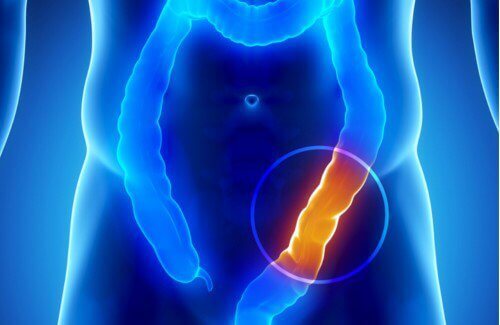Stomach Growls: What You Never Knew

There’s more than just hunger pains behind those stomach growls. You may think it’s your body’s way of telling you to eat. Still, it may go well beyond that. Find out what you can do when your stomach growls.
Your digestive system
It’s important to understand the relationship between your stomach and digestive system. Doing so will help you better understand why your stomach is making noise.
Your digestive system is basically a long tube that goes from your mouth to your anal cavity. It’s a pretty simple system but becomes more complicated when you factor in your body’s many organs. Muscular contractions (called peristalsis) digest your food and move it through your body. These contractions also help your body mix liquids with solids and gastric acids.

Most of your stomach growls are your digestive system mixing your stomach contents with its liquids. The air produced begins busting with the contractions of your intestines, producing that notable popping sound. These sounds can be produced at any time even when you’re not hungry. The difference is that when your stomach is full, these sounds are less perceptible.
So, if your stomach is empty, why is your digestive system contracting? Around two hours before your stomach is totally empty, it begins to produce certain hormones. The hormones stimulate the nervous system and send a message to your brain to eat more. The brain responds to these signals with an order to start the contractions. Then, the contractions finish emptying your stomach, and may even provoke other signs of hunger so you want to eat again.
What causes excessive stomach growls?
Everything we’ve discussed before is normal activity. When your stomach growls excessively, it can not only affect your health but your digestive process. This often happens without a cause. What’s more, the excessive noises may be due to more than just hunger.
Strict diets
If you’re eating less than what you’re used to during the day or night, you might be confusing your digestive system. Strict diets can often consist of foods that have certain nutrients or high amounts of calories. In addition, they may produce excessive stomach growls since food is digested faster, signaling hunger.
Soft drinks
The mixture of gases and air inside your stomach can cause these sounds as well. If you’re drinking soda or other carbonated drinks, you increase the number of bubbles in your digestive system. As a result, the bubbles can pop and make gastric noises. When your body can’t eliminate or expel the excess air naturally, the process takes place in your digestive system. Eating too quickly or ingesting air along with your food can also cause the same thing to happen.
Find out more: 8 Positive Health Changes When You Give up Soft Drinks
Food intolerance
Lactose in milk, yogurts, creams, and cheese is the most common food intolerance. When it remains in your belly too long, the bacteria present can produce extra gas and bubbles in your system. You should always avoid any food to which you’re intolerant.
Ulcers
Ulcers in your digestive system can also be a cause. Indeed, the only difference is the time and amount of air present in your system. This condition often appears along with pain and discomfort and has nothing to do with hunger. You should adjust your diet to address this issue.
Symptoms of irritable bowel syndrome
The symptoms of this disorder are similar to those of ulcers. In addition to causing stomach growls, it also causes awful pain after eating certain foods.
Read more: Treat Irritable Bowel Syndrome with Ginger & Chamomile Tea

Controlling stomach growls
When not directly related to a medical condition, you can do certain things to help control or relieve it:
- Chew your food well. When your body combines the solids and liquids in your stomach, there will be less gas produced.
- Have a cup of tea after your food, such as mint, which can help ease stomach issues.
- Don’t breathe too deeply during eating to reduce the amount of air you ingest.
- Eat less. Snacks are simpler to digest and don’t allow your stomach to send your brain hunger signals.

This text is provided for informational purposes only and does not replace consultation with a professional. If in doubt, consult your specialist.









